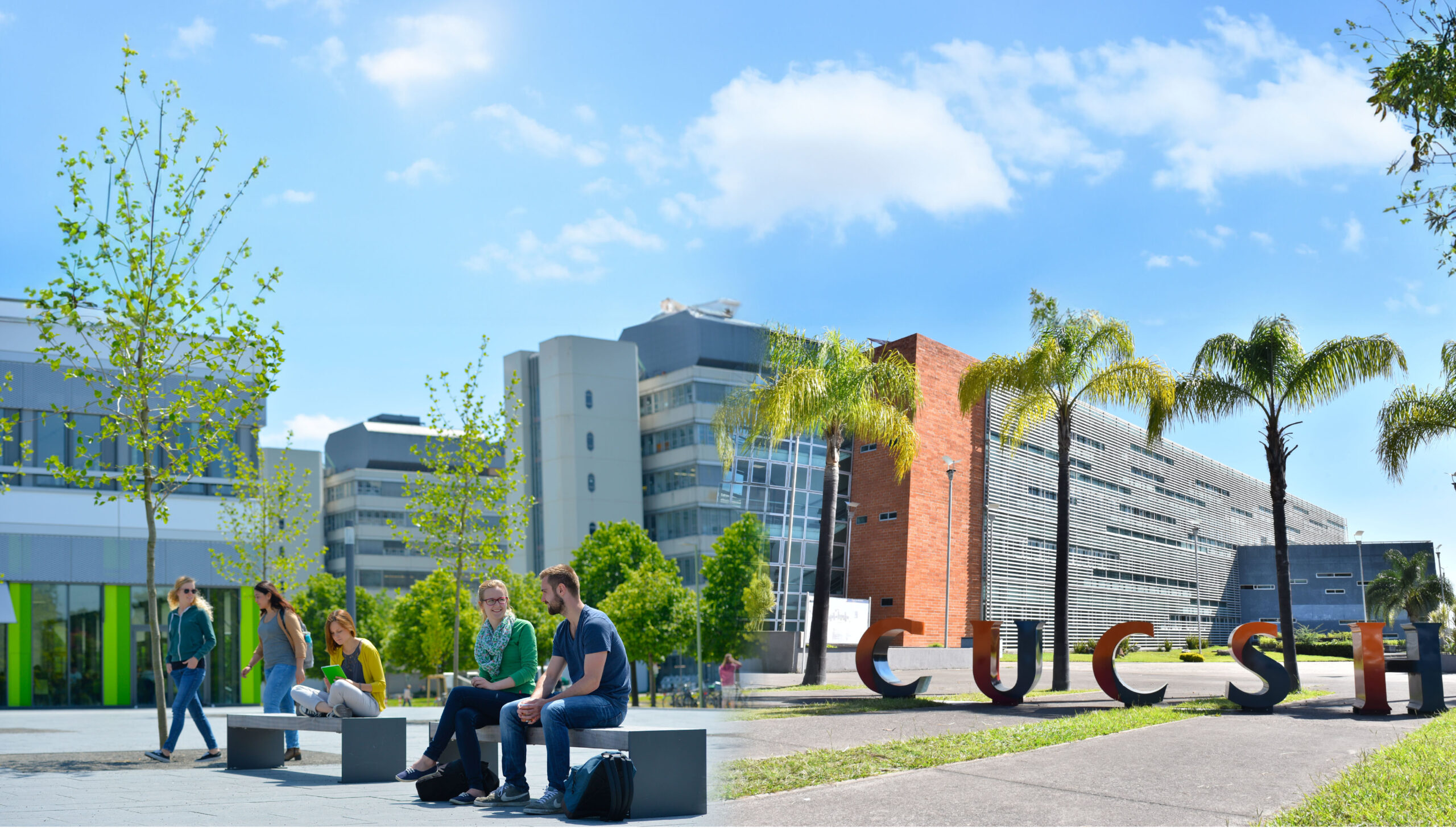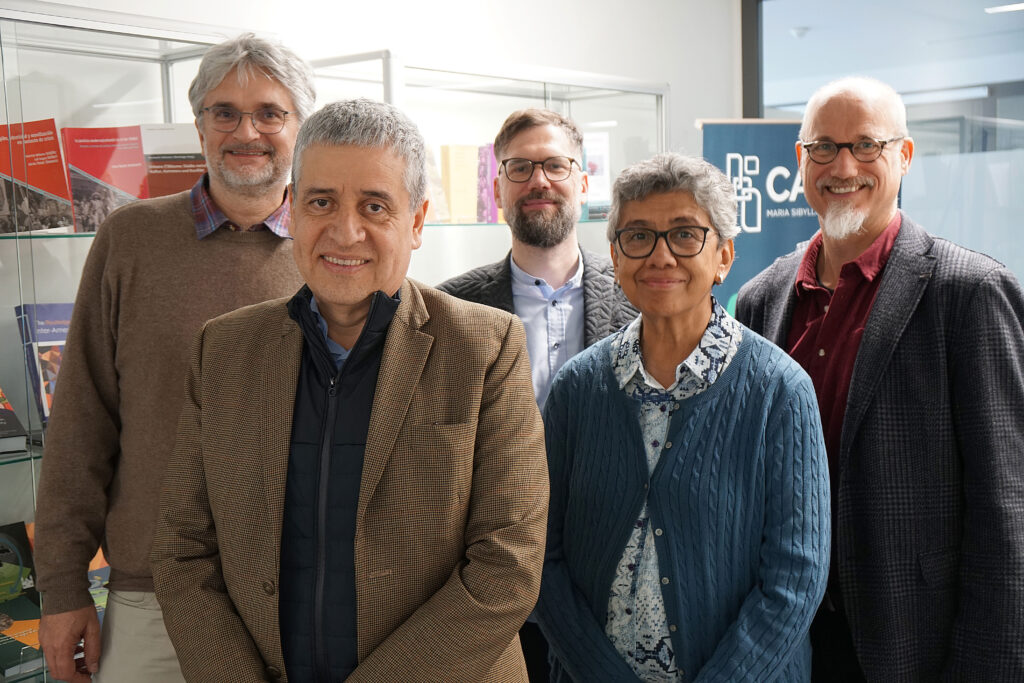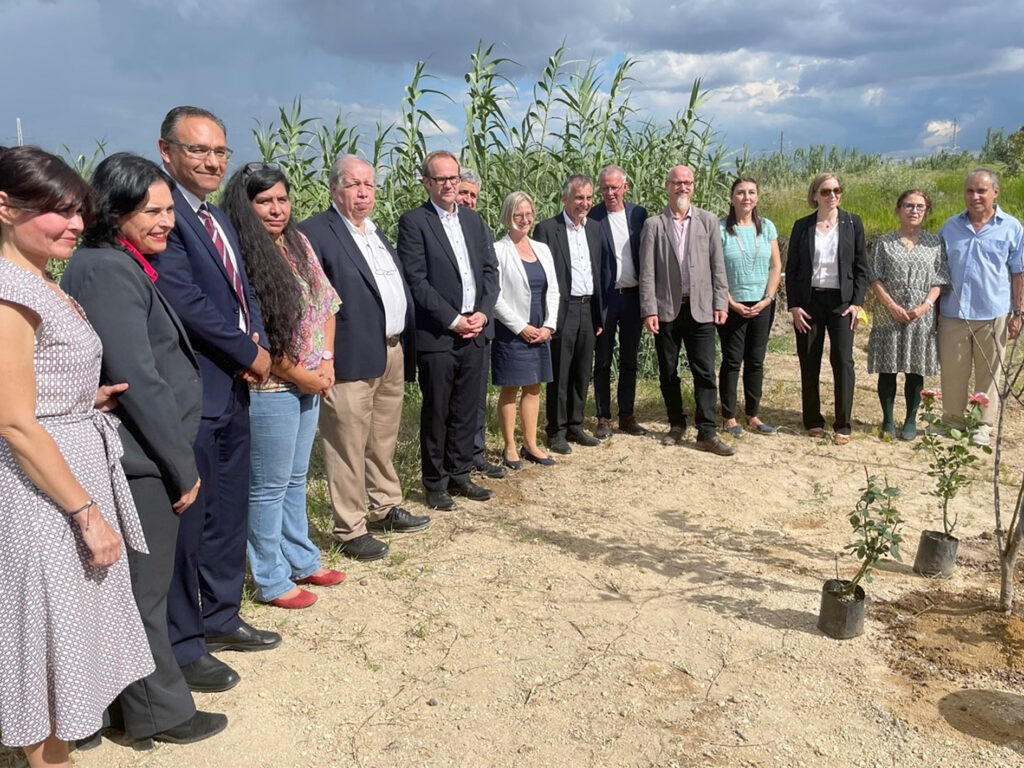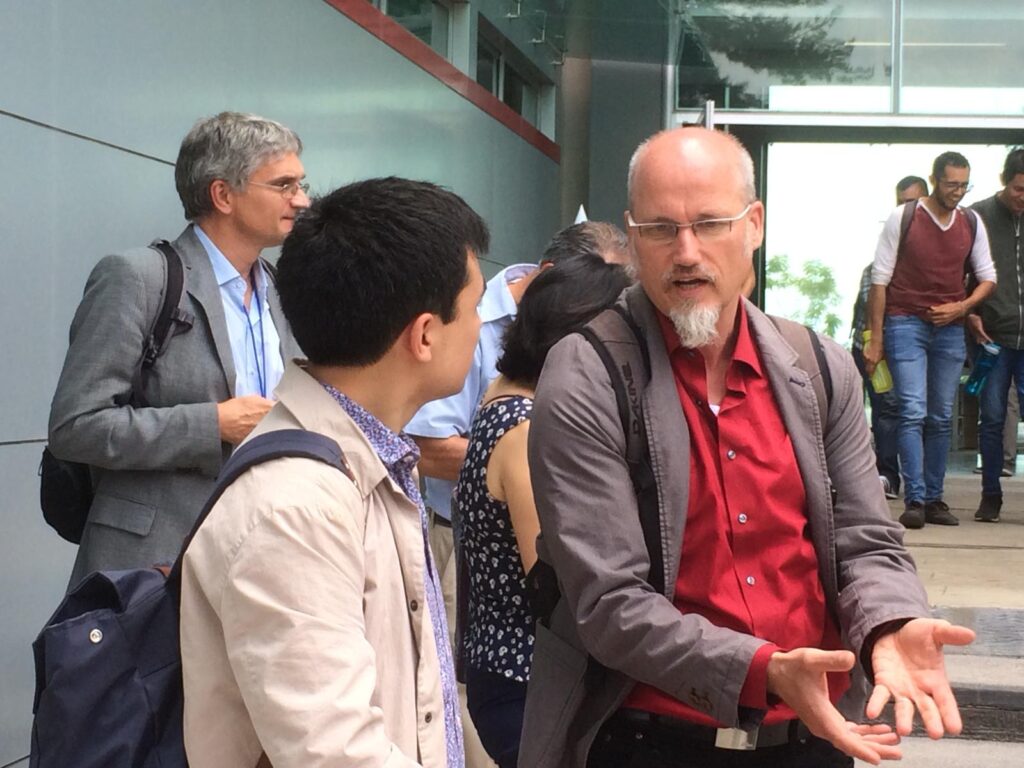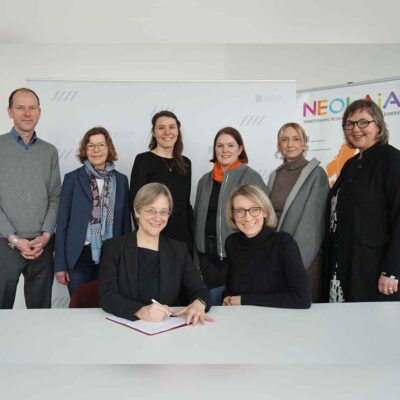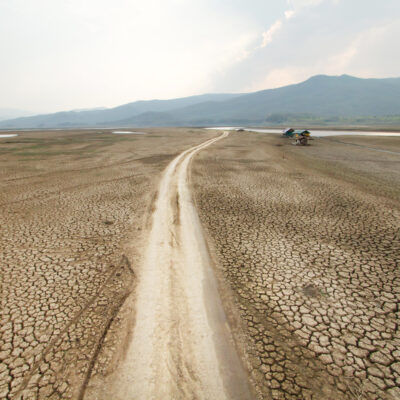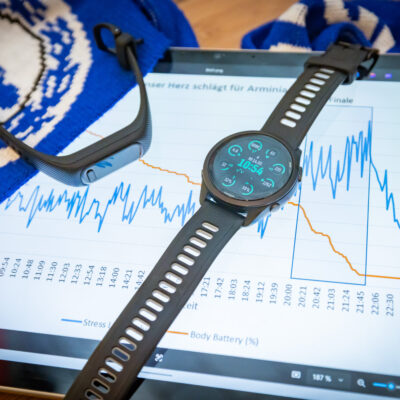About 20 years ago, everything started from a single contact. Today it is a deep and growing connection between two universities: the strategic partnership between Bielefeld University and the University of Guadalajara in Mexico. In practice, this means joint study formats and German-Mexican co-teaching, academic work in the CALAS network that fills a research gap, and the commitment of two liaison offices at both universities. How has this strategic partnership been consolidated? What scientific accomplishments do Bielefeld and Guadalajara achieve together? What are the perspectives as a partnership? The visit and research stay of two guests from Guadalajara in Bielefeld enables a conversation about how the two partner universities work and teach together.
“Our partnership is more of a community,” says Professor Dr Héctor Raúl Solís Gadea, sociologist at the University of Guadalajara and also vice rector of the Mexican university. Dr Olaf Kaltmeier, Bielefeld Professor of Ibero-American History, adds: “From the first contact, the German and Mexican sides had a common understanding of how we could work together.” Dr Joachim Michael, Professor at the Faculty of Linguistics and Literary Studies in Bielefeld, adds: “The institutional support of both universities has made it possible for us to work together at this level and in this depth today.
Examples from studies, research, teaching and institutional cooperation show this strategic partnership in action.
One degree programme – two degrees: The Master InterAmerican Studies
For five years now, students in Bielefeld and Guadalajara have been able to take the Master’s programme InterAmerican Studies / Estudios InterAmericanos and graduate with a double degree, i.e. a degree from both universities. Currently, 32 students are enrolled in the programme on both sides. They are studying intercultural studies – from literary studies to cultural studies. “The way our students complete the programme is also intercultural: They deal with two different systems and academic cultures,” explains Joachim Michael, coordinator of the programme in Bielefeld. The programme students spend two semesters in Bielefeld and two semesters in Guadalajara. Teaching staff, instructors, lecturers from both universities supervise the final theses. “Without the ongoing connection of our teaching staff, instructors, lectures, this agreement would not work so well and could not last,” adds Héctor Raúl Solís Gadea.
When lecturers become learners
Anthropologist Professor Dr Rosa Yáñez from Guadalajara was a research fellow in Bielefeld in autumn 2023 for what is now her third research stay. She presented her current research work in a course taught by Olaf Kaltmeier: How did people in the colonial era use the indigenous language Nahuatl to express what they wanted in text and words? “The students in Bielefeld raised questions and perspectives that I hadn’t even thought of yet and that I now want to take into account in my research,” says Rosa Yáñez. Olaf Kaltmeier was able to observe how the course “gave rise to an ongoing interactive dialogue between teaching staff and students – really fascinating!”
Sociologist Héctor Raúl Solís Gadea and literary scholar Joachim Michael discussed democracy in the current Winter semester in the interdisciplinary co-teaching seminar in Bielefeld – from the theoretical concept of democracy to critical reflections in film and literature. Solís Gadea comments: “Our students from different parts of the world do not all have the same idea of democracy, one of the most pressing issues of our time. We were able to argue together about what democracy even means.” During this and other German-Mexican seminars, lectures become learners. Joachim Michael says: “I am constantly learning from my international partner and can see how he plans his teaching or manages the course.”
The CALAS Centre as a stand-out research project
In 2017, the “Maria Sibylla Merian Centre for Advanced Latin American Studies in the Humanities and Social Sciences” (CALAS) was approved as the most financially extensive research project on Latin America with funding from Germany. The Federal Ministry of Education and Research (BMBF) is funding the centre, which has its headquarters in Guadalajara, with up to 20 million euros for 12 years. Sarah Corona Berkin from Guadalajara is the Latin-American director and Olaf Kaltmeier the German one, and speaker of this project that consist of a network of 4 Latin-American and 4 German universities. Further regional offices have been established within the CALAS network in Ecuador, Costa Rica and Argentina.
The aim is to research how crises are solved in Latin America – and what can be learned from them. As an example, Olaf Kaltmeier mentions the scientific investigation of the Yasuní-ITT initiative. The movement initiated a referendum in Ecuador on not fleecing the country’s fossil resource deposits in order to protect the Yasuní rainforest in the country and its biodiversity. The majority of people in Ecuador voted in August 2023 for the long-term protection of the forest and against short-term economic gains from oil extraction there. “We are now publishing a scientific anthology on our research on the ethics of care using examples from Latin America,” says Olaf Kaltmeier. In any case, CALAS “no longer just stands for the centre or the research project”, as Héctor Raúl Solís Gadea reports, “but has become a reference point in the Latin American academic world”. In the CALAS network, new research projects, approaches and results have been achieved “that did not previously exist in the social sciences and humanities in Latin America”, says Olaf Kaltmeier. The goal of the partners in Latin America and Germany is to anchor the newly developed research fields in Latin America beyond the CALAS funding period. Kaltmeier adds: “The strong commitment of the universities in Bielefeld University and Guadalajara is the driving force behind this.
Liaison offices on both sides
A year ago, Bielefeld University administration opened the local liaison office of the strategic partnership together with the partners in Guadalajara. In the meantime, the counterpart in Bielefeld has also been installed under the direction of Dr. Philipp Wolfesberger, managing director of the Center for InterAmerican Studies (CIAS), where the liaison office is anchored. The offices at both universities serve as contact points to advise and mediate students, teaching staff, instructors, lectures and researchers from all subject areas on exchange opportunities between the universities. “Through the existing exchange formats, we are identifying further possible points of connection between Bielefeld and Guadalajara- currently in the fields of public health and robotics, for example,” explains Philipp Wolfesberger. The questions are: What could be joint research projects? How can we cooperate in new, additional fields of research? The two universities have recently taken another step in the strategic partnership: “We have expanded our cooperation through an additional exchange programme within the framework of ERASMUS+.”
